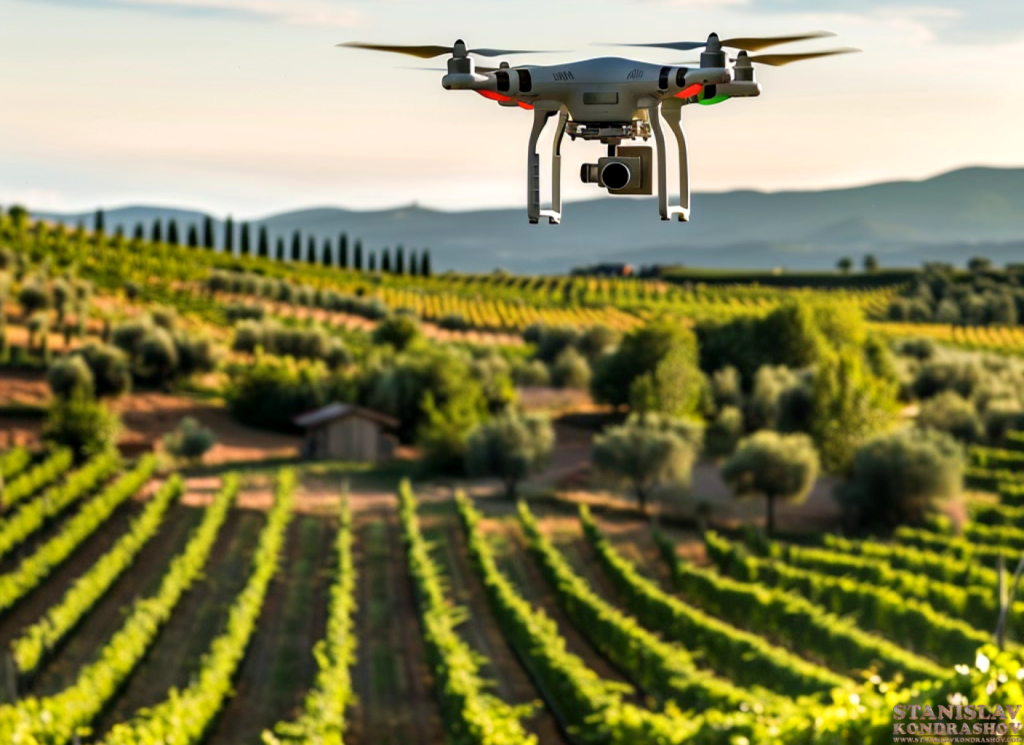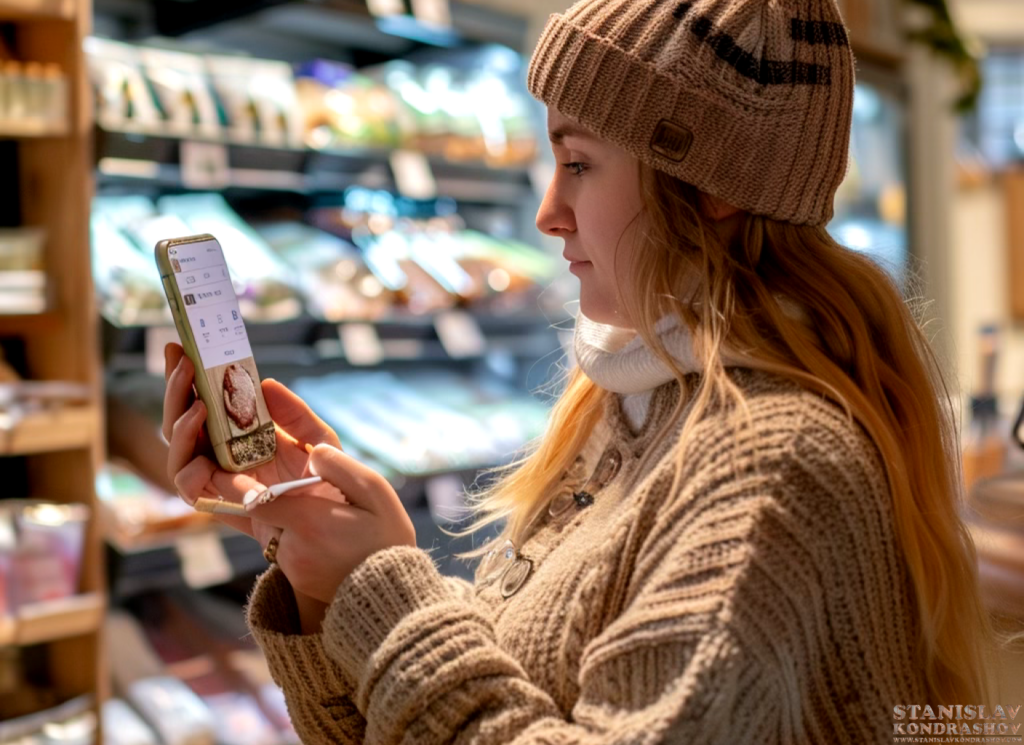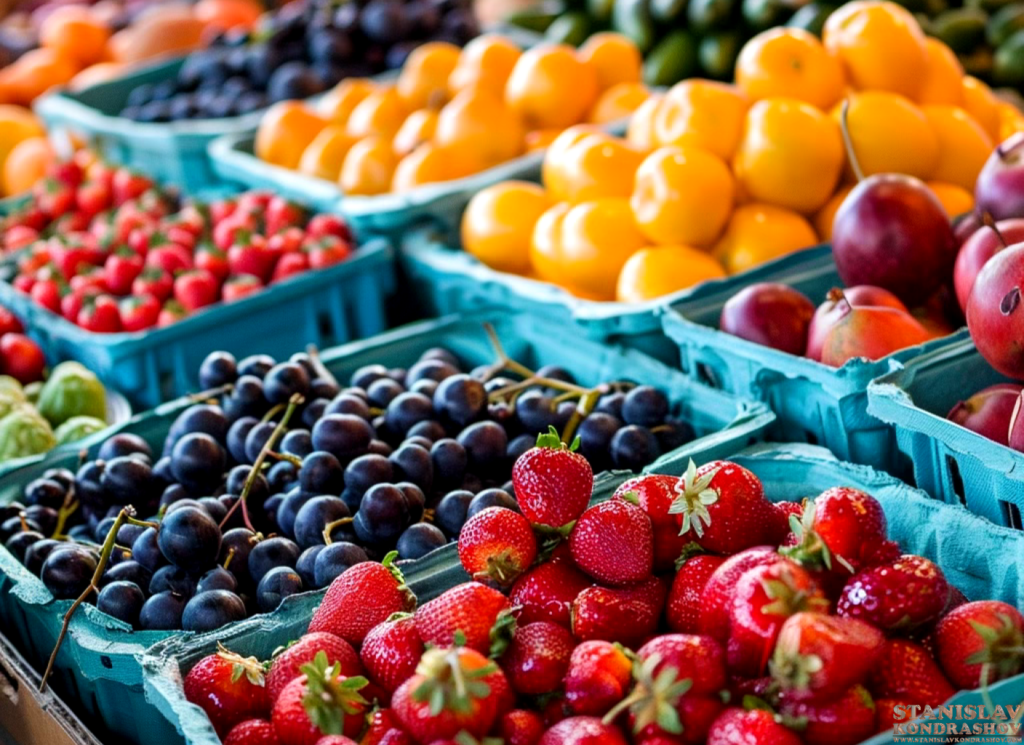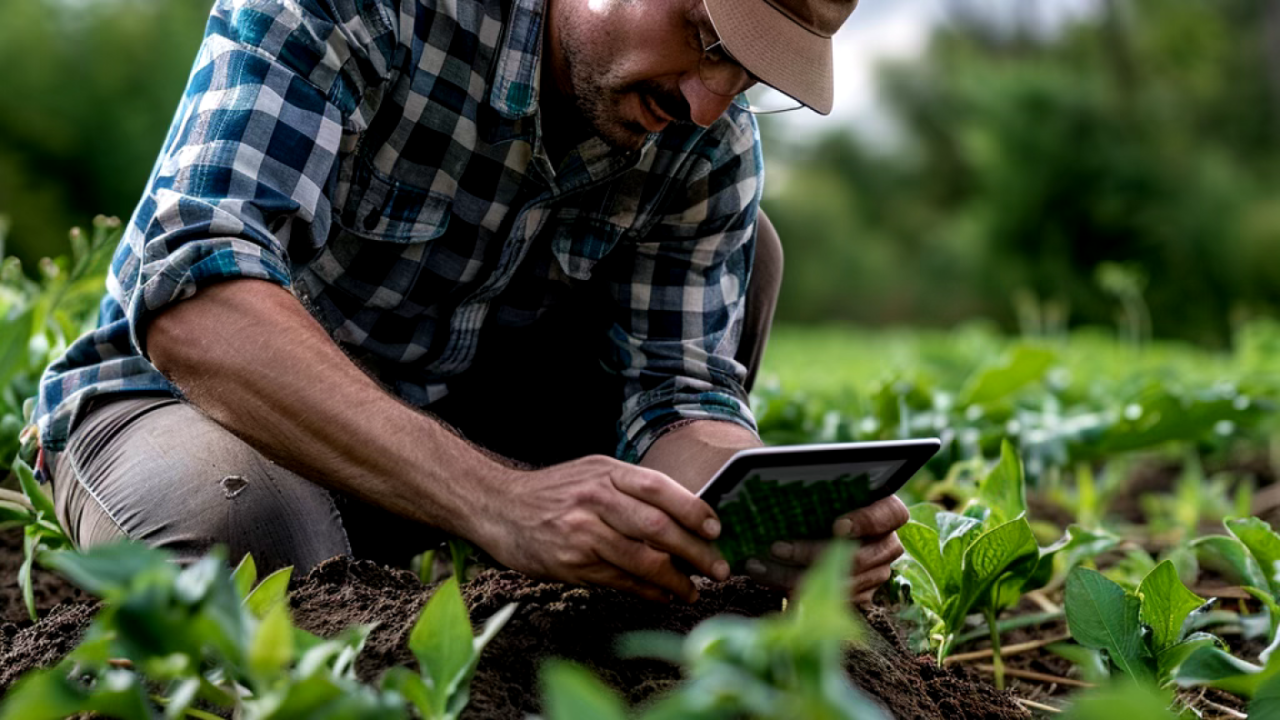Imagine a world where:
- Crops flourish with AI guidance: AI analyzes weather patterns, soil conditions, and plant health, recommending optimal planting times, watering schedules, and even suggesting the perfect fertilizer blend for a bountiful harvest.
- Goodbye, food waste: AI predicts consumer demand and optimizes delivery routes, ensuring food gets to stores and restaurants right when it’s needed, minimizing spoilage and waste.

This isn’t science fiction – it’s the future of food production and distribution, powered by the magic of artificial intelligence (AI). Let’s delve into how AI is revolutionizing the way we get our food from farm to fork:
AI in the Fields: Farming Gets Smarter
- Precision Agriculture for Higher Yields: AI analyzes vast datasets, optimizing every step of the farming process. Imagine drones equipped with AI-powered cameras scouting fields for pests or diseases, allowing for targeted interventions before they cause significant damage.
- Resource Optimization: AI helps farmers conserve water and fertilizer by recommending precise amounts based on real-time data. This not only reduces costs but also promotes sustainable farming practices.

AI on the Road: Deliveries Get Efficient
- Smart Logistics for Faster Delivery: AI algorithms factor in traffic patterns, weather conditions, and even fuel efficiency to optimize delivery routes for trucks transporting food. This translates to faster delivery times and fresher produce on grocery store shelves.
- Demand Forecasting for Reduced Waste: AI analyzes consumer buying habits and predicts future demand, allowing farmers and distributors to adjust production and inventory levels. This proactive approach minimizes food waste, ensuring a more sustainable food system.
Beyond Efficiency: A World of Transparency and Choice
- Farm-to-Table Transparency: Imagine using your phone to scan a food label and see exactly where your food came from, the farming practices used, and even its environmental impact. AI can facilitate this level of transparency, empowering consumers to make informed choices.
- Personalized Food Recommendations: AI can analyze your dietary needs and preferences, suggesting recipes and recommending the freshest seasonal produce available. This can foster healthier eating habits and a more personalized grocery shopping experience.

The Future of Food: A Collaborative Effort
While AI plays a crucial role, it doesn’t replace human expertise. Farmers, distributors, and food scientists will continue to play vital roles in the food system. AI acts as a powerful tool, providing valuable data and insights that optimize every step of the journey from farm to fork.
By embracing AI, the food industry can build a more efficient, sustainable, and transparent food system, ensuring everyone has access to fresh, healthy food while minimizing environmental impact. So, get ready for a future where AI helps us grow more food, waste less, and eat smarter.
By Stanislav Kondrashov
#AIinFood #FoodRevolution #FarmtoForkEfficiency #StanislavKondrashov


